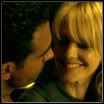Post by TVFan on Feb 22, 2007 20:59:53 GMT -5
TV Review: Cold Case - "Blood on the Tracks"
Written by Ray Ellis
Published February 19, 2007
I'm just gonna go ahead and say it: Cold Case (CBS, Sundays 9P EST) is probably the most intriguing cop show on network TV and it's certainly the best thing the Big Four have running on Sunday nights. Airing opposite Donald Trump's ego trip The Apprentice, the fossilized Desperate Housewives and the one-trick pony Family Guy, that's not necessarily saying much, but Cold Case has something those other programs don't--an actual, self-contained story.
Now in its fourth season, Cold Case has always maintained a respectable niche in the ratings, even in the glory days of Desperate Housewives. While the latter jumped the shark some time ago, Cold Case continues to quietly offer compelling storylines that value substance over style. Even in the time-worn realm of cop shows, it goes against the grain of the formula. This is not an action-adventure series--I don't think I've ever seen any of the principals even draw their weapons.
Like virtually any TV series, it by necessity adheres to a formula, here being solving murders committed years, sometimes decades ago. That premise alone provides an almost inexhaustible well of plotlines from which to draw. But Cold Case takes it a step further, utilizing flashbacks and period music to carry the story and immerse the viewer in the plot details. By using different actors to portray the same character in the then and now sequences, an air of authenticity is established as we see personal perspectives shift through the years. The soundtrack music adds another layer to the notion that the past never dies, and that restless spirits still cry out for justice.
Last night's episode, "Blood on the Tracks," was a perfect example of the show's "hook." It follows the events leading to the 1981 murder of a first generation yuppie couple. At the time, it was dismissed as an accidental gas explosion in their home, but newly discovered evidence indicates that it was a bomb that killed them. Det. Lily Rush (Kathryn Morris) and her team piece together the couple's past and find that they were members of a radical anti-war group in the early seventies not opposed to planting small bombs in government facilities to make their point. When the war was over, they and their associates traded in their misplaced idealism for suburban lifestyles and corporate jobs.
Once it's established that the gas explosion that killed the couple was no accident, the surviving members of the group are all under suspicion. This is the part of the storyline where Cold Case episodes work best. In this particular instance, we see all the suspects as they are now--well-respected members of corporate society, and as they were then--radical students militant in their opposition to the Vietnam war. The only disappointing aspect is we never see exactly how they got from point A to point B. However, considering the story is played out through the memories of the characters, this isn't that surprising. Memories are prone to picking and choosing details.
It's a taut mystery that moves effortlessly between 1971, 1981 and 2007, making subtle comments about the shifts in American mores along the way. The seamless integration of the time frames is aided tremendously with a soundtrack consisting of eight Bob Dylan song snippets, punctuating various issues and plot points at key times. They're never obtrusive, but serve to enhance the story.
If you've never seen Cold Case, you owe it to yourself to check it out. Granted, you won't see a lot of frenetic action or hear a passle of snappy one-liners, all forgotten by morning. What you will experience is more akin to a novel wherein the detective calmly pieces together the fingerprints of the past.
HERE
Written by Ray Ellis
Published February 19, 2007
I'm just gonna go ahead and say it: Cold Case (CBS, Sundays 9P EST) is probably the most intriguing cop show on network TV and it's certainly the best thing the Big Four have running on Sunday nights. Airing opposite Donald Trump's ego trip The Apprentice, the fossilized Desperate Housewives and the one-trick pony Family Guy, that's not necessarily saying much, but Cold Case has something those other programs don't--an actual, self-contained story.
Now in its fourth season, Cold Case has always maintained a respectable niche in the ratings, even in the glory days of Desperate Housewives. While the latter jumped the shark some time ago, Cold Case continues to quietly offer compelling storylines that value substance over style. Even in the time-worn realm of cop shows, it goes against the grain of the formula. This is not an action-adventure series--I don't think I've ever seen any of the principals even draw their weapons.
Like virtually any TV series, it by necessity adheres to a formula, here being solving murders committed years, sometimes decades ago. That premise alone provides an almost inexhaustible well of plotlines from which to draw. But Cold Case takes it a step further, utilizing flashbacks and period music to carry the story and immerse the viewer in the plot details. By using different actors to portray the same character in the then and now sequences, an air of authenticity is established as we see personal perspectives shift through the years. The soundtrack music adds another layer to the notion that the past never dies, and that restless spirits still cry out for justice.
Last night's episode, "Blood on the Tracks," was a perfect example of the show's "hook." It follows the events leading to the 1981 murder of a first generation yuppie couple. At the time, it was dismissed as an accidental gas explosion in their home, but newly discovered evidence indicates that it was a bomb that killed them. Det. Lily Rush (Kathryn Morris) and her team piece together the couple's past and find that they were members of a radical anti-war group in the early seventies not opposed to planting small bombs in government facilities to make their point. When the war was over, they and their associates traded in their misplaced idealism for suburban lifestyles and corporate jobs.
Once it's established that the gas explosion that killed the couple was no accident, the surviving members of the group are all under suspicion. This is the part of the storyline where Cold Case episodes work best. In this particular instance, we see all the suspects as they are now--well-respected members of corporate society, and as they were then--radical students militant in their opposition to the Vietnam war. The only disappointing aspect is we never see exactly how they got from point A to point B. However, considering the story is played out through the memories of the characters, this isn't that surprising. Memories are prone to picking and choosing details.
It's a taut mystery that moves effortlessly between 1971, 1981 and 2007, making subtle comments about the shifts in American mores along the way. The seamless integration of the time frames is aided tremendously with a soundtrack consisting of eight Bob Dylan song snippets, punctuating various issues and plot points at key times. They're never obtrusive, but serve to enhance the story.
If you've never seen Cold Case, you owe it to yourself to check it out. Granted, you won't see a lot of frenetic action or hear a passle of snappy one-liners, all forgotten by morning. What you will experience is more akin to a novel wherein the detective calmly pieces together the fingerprints of the past.
HERE













